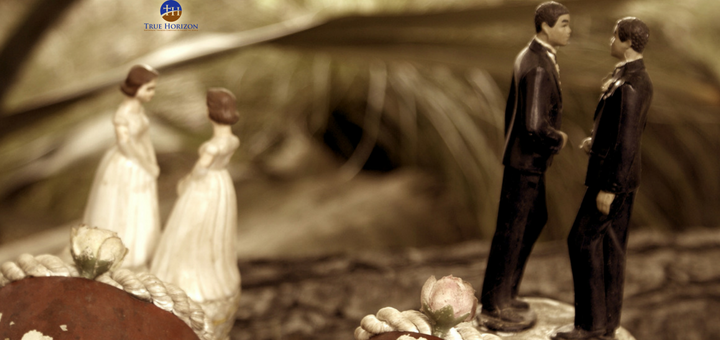Would Jesus Bake The Cake?
In June of 2018, a Colorado baker named Jack Phillips won his case in the U. S. Supreme Court. The case stemmed from his refusal to bake a cake for a same-sex wedding ceremony. But it’s not over. Immediately thereafter, a transgender woman targeted Phillips again. She wanted him to bake a cake for the anniversary celebration of her “transition.” Phillips refused again and a new lawsuit is underway. I’m not going to weigh in on issues of religious liberty and same-sex marriage here. Instead, I want to focus on a related point that I find fascinating — that Progressives believe Jesus is on their side when it comes to issues like this.
Progressives Love Jesus
The love affair many Progressives have with Jesus is nothing new. They have always been quick to exhort others to “turn the other cheek.” And who hasn’t heard someone who has no use for Christianity invoke the “don’t judge” response? Everybody wants to quote the kind, loving Jesus. And they should.
But, in this case, both Christian and secular Progressives’ respect for Jesus takes a new form. I have a friend who regularly mocks Christian values and beliefs. After the announcement of the Jack Phillips’ Supreme Court decision, she was predictably mortified. At the end of a long rant about Christian bigotry in the case, she told me that she was “pretty sure Jesus would bake the cake.”
Would he?
What Jack Phillips Did
Before I attempt to answer that question, it’s important to understand what Jack Phillips did. Phillips was happy to bake cakes for anyone who walked into his store. In fact, he had baked cakes for gay customers many times. What he refused to do was allow himself to be part of a celebration that violated his religious conscience. As Phillips explained:
“I don’t create cakes for Halloween, I wouldn’t create a cake that would be anti-American or disparaging against anybody for any reason, even cakes that would disparage people who identify as LGBT,” he said. “Cakes have a message and this is one I can’t create.”
Jack Phillips has been rigidly consistent in this stance. It is the very same stance that has embroiled him in another case of the same kind. He has no animus toward gay people. His position is simple. He doesn’t want to take part in ceremonies that solemnize same-sex behavior.
If we were to believe that Jesus would bake the cake, we would have to make the case that he would disagree with Jack Phillips’ position. Does he? We can only determine that by looking at what Jesus said about the issues in question.
What The Bible Says
It’s not fashionable these days to quote the Bible. I get that. But if we’re going to speculate about what Jesus would do in a given situation, we need to be clear about what his Book teaches. There are three places in the New Testament that specifically refer to homosexual activity. Here is what they say:
Romans 1:26-27 — God gave them over to shameful lusts. Even their women exchanged natural relations for unnatural ones. In the same way, the men also abandoned natural relations with women and were inflamed with lust for one another. Men committed indecent acts with other men and received in themselves the due penalty for their perversion.
1 Corinthians 6:9-10 — Do you not know that the wicked will not inherit the kingdom of God? Do not be deceived. Neither the sexually immoral nor idolaters nor adulterers nor male prostitutes nor homosexual offenders nor thieves nor the greedy nor drunkards nor slanderers nor swindlers will inherit the kingdom of God.
1 Timothy 1:9-10 — The law is not laid down for the just but for the lawless and disobedient, for the ungodly and sinners, for the unholy and profane, for those who strike their fathers and mothers, for murderers, the sexually immoral, men who practice homosexuality, enslavers, liars, perjurers, and whatever else is contrary to sound doctrine …
We don’t even have to address the Old Testament teaching on homosexuality. The New Testament makes it pretty clear that God’s opinion of homosexual behavior is negative.
What Jesus Said
With that view in mind, what does Jesus say about marriage specifically?
When he’s asked about it, his answer is recorded almost identically by both Matthew and Mark. In both accounts, he refers back to the book of Genesis to respond:
Matthew 19:4-6 and Mark 10:6-9 — “Haven’t you read,” he replied, “that at the beginning the Creator ‘made them male and female,’ and said, ‘For this reason a man will leave his father and mother and be united to his wife, and the two will become one flesh’? So they are no longer two, but one. Therefore what God has joined together, let man not separate.”
Would Jesus Bake The Cake?
We’ve established two points here.
First, the biblical view of homosexual behavior is quite negative. We have evidence for that in both the Old and New Testaments. Now, it is true that God’s view of most human behavior is pretty negative. We all do stuff God doesn’t like. But he offers us forgiveness when we make the decision to stop doing what we’re doing.
The key point is that we must turn away from the rebellious behavior and turn toward God to ask forgiveness. That’s pretty clear.
Second, Jesus’ take on the sanctity of marriage goes back to the first human beings he created. Those two — one man and one woman — were joined together in the beginning. That is the model Jesus uses to paint a picture of marriage as he designed it.
In other words, participating in the celebration of a same-sex wedding would mean that Jesus would need to do two things:
- Approve of someone who insists on continuing to do something he finds unacceptable
- Defy his own definition of marriage.
Given those two points, does it make sense to say that Jesus would bake a cake to help celebrate a ceremony that encouraged them both?
I’m pretty sure he wouldn’t.
Jack Phillips Got It Right
Jack Phillips has always been kind and loving toward members of the LGBT community. He treats them with dignity and respect even though he disagrees with their behavioral choices. All of us should do the same. But Jack Phillips drew a line when he was being asked to help celebrate those choices. He made a distinction between loving people and celebrating anything people do.
Those who say they are “pretty sure Jesus would bake the cake,” don’t seem to get that distinction. They like Jesus when he says we should do things we should all be doing. But they never seem to acknowledge the rest of what he said.
People may certainly disagree with Jesus’ point of view. That would be understandable. But what those who disagree cannot do is invoke Jesus’ name to claim he is on their side.
Jesus would be loving and kind. He would explain his point of view and implore the couple to change the way they think. But, when you consider everything he said, it seems pretty obvious that Jesus wouldn’t bake the cake.








I was once a Juvenile Detention Manager and had an employee under my supervision who came out as being gay (actually lesbian), then after some time went by, was going to have a ‘marriage ceremony’ with her partner even though there were no legal same-sex marriages at the time. She was very excited and inviting various staff to the ceremony. Prior to coming out, she had professed Christ and we had fellowship as “Christians.”
One day we were in my office going over something. I was always a little afraid she was going to ask me to attend the ceremony as I knew I could not due to the very same reasons you have listed related to making the cake. She asked me, “Pat, if I gave you an invitation, would you come to my marriage ceremony?” It felt like time stopped and I really didn’t know what to answer, but in an instant, I really think the Holy Spirit gave me words that were perfect.
I said, “Emily, if you give me an invitation, I would be honored as that says to me that you care about me and I would absolutely not come.” I said it in a very calm voice and we had a good relationship from times past. We both smiled and laughed slightly, then finished the meeting.
The next morning when I came to work, I found an invitation to her ceremony sitting on my chair and I had to smile!! I feel like I tasted the heart of Christ, had love and concern for her, yet could not participate in the event.